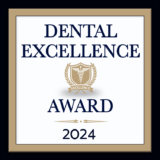 Oral candidiasis, commonly referred to as oral thrush, is a common fungal infection that affects the mouth and throat. It is caused by an overgrowth of the Candida fungus, specifically Candida albicans, which is normally present in small amounts in the mouth. While the “white tongue” is most commonly seen in infants, it can affect people of all ages. This infection especially affects those with weakened immune systems or certain medical conditions. Here are some important things you should know about oral thrush:
Oral candidiasis, commonly referred to as oral thrush, is a common fungal infection that affects the mouth and throat. It is caused by an overgrowth of the Candida fungus, specifically Candida albicans, which is normally present in small amounts in the mouth. While the “white tongue” is most commonly seen in infants, it can affect people of all ages. This infection especially affects those with weakened immune systems or certain medical conditions. Here are some important things you should know about oral thrush:
Common Symptoms of Oral Thrush
The most common symptom of oral thrush is the presence of creamy white, raised lesions in the mouth and throat. These lesions can be painful and may bleed when scraped. Other symptoms include:
- A cottony feeling in the mouth.
- Loss of taste.
- Difficulty swallowing.
- Redness or soreness in the mouth and throat.
Risk Factors
Certain factors can increase the risk of developing oral thrush. These include a weakened immune system, such as in people with HIV/AIDS or those undergoing chemotherapy, the use of antibiotics or corticosteroids, uncontrolled diabetes, poor oral hygiene, and wearing dentures that don’t fit properly.
Treatment for Oral Thrush
Oral candidiasis is typically treated with anti-fungal medications, such as prescription rinses or lozenges that contain nystatin or clotrimazole. In severe cases, oral anti-fungal medications may be prescribed. It’s important to complete the full course of treatment, even if the symptoms improve, to prevent recurrence.
Prevention
There are several steps you can take to prevent the development of oral thrush. These include practicing good oral hygiene, such as brushing your teeth twice a day and flossing daily, avoiding the use of mouthwashes that contain alcohol, regularly cleaning and disinfecting dentures, and maintaining a healthy lifestyle to strengthen your immune system.
Complications
While oral thrush is usually a mild condition, it can sometimes lead to complications, especially in people with weakened immune systems. If left untreated, the infection can spread to other parts of the body, such as the esophagus, leading to a more severe condition called esophageal candidiasis. In infants, this infection can also cause diaper rash or a yeast infection in the mother’s nipples if breastfeeding.
Seeking Medical Advice
If you suspect you have oral thrush, it’s important to seek medical advice for an accurate diagnosis. Your healthcare provider will examine your mouth and may take a sample of the lesions for laboratory testing. They will then recommend an appropriate treatment plan based on the severity of the infection and your overall health.
When To See A Dentist Near Joliet IL
Overall, oral thrush is a common condition that can be easily treated with anti-fungal medications. By practicing good oral hygiene and taking steps to strengthen your immune system, you can reduce the risk of developing oral thrush and maintain a healthy mouth and throat. Remember to seek medical advice if you experience persistent symptoms or if the infection spreads to other parts of your body.
If you notice that your tongue is white, it is important to seek a dentist for proper diagnosis and treatment. Our team of dentists at Shorewood Family Dental Care are trained professionals who specialize in oral health and can provide you with the necessary care for your condition. Oral thrush is a fungal infection that affects the mouth and can cause discomfort and pain. Dentists can examine your mouth, take a swab of the affected area for testing, and prescribe appropriate anti-fungal medication to help treat the infection. They can also provide you with advice on oral hygiene practices to prevent future occurrences of this infection. Seeking a dentist for oral thrush ensures that you receive proper care and treatment for your condition.




